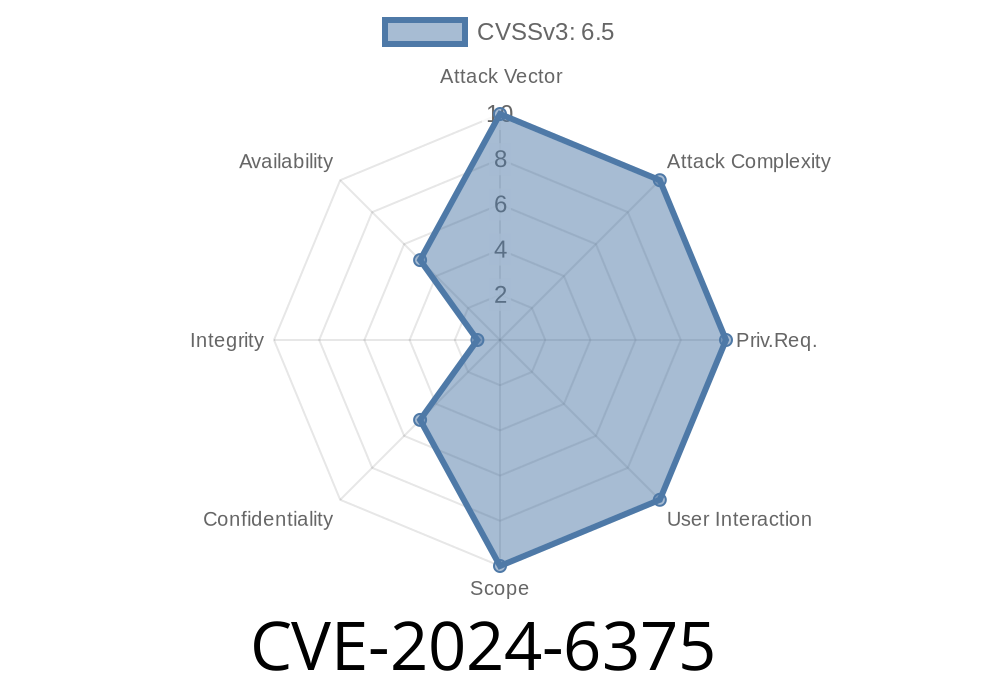MongoDB is a widely used NoSQL database, powering thousands of applications worldwide. In mid-2024, a security weakness—CVE-2024-6375—was discovered that could allow unauthorized actions and sensitive information leaks. Even though it sounds technical, understanding this issue is important, especially if your organization runs sharded MongoDB clusters.
Let’s break down what happened, how it works, and how someone could potentially exploit it.
What is CVE-2024-6375?
Usually, when you run administrative commands in MongoDB—especially those that change data structure or layout—a permissions check makes sure only authorized users can do it. In vulnerable MongoDB versions, the command for refining a collection’s shard key did not properly check if the user was allowed to run it, if the command was issued directly against a shard (rather than through the cluster router, mongos).
What does “refining a collection shard key” mean?
In sharded clusters, data in a collection is split and spread ("sharded") across different servers (shards) to balance the load. The shard key tells MongoDB how to split this data. Sometimes, you might want to refine (update) the shard key—add more fields to make sharding smarter, for example.
A special command exists for this
db.adminCommand({
refineCollectionShardKey: "db.collection",
key: { field1: 1, field2: 1 }
})
This is a powerful operation and can change how your database behaves.
Where it went wrong
The code behind the refineCollectionShardKey command forgot to check authorization if the command was sent directly to a shard server. Normally, permissions are enforced at the main entry point (mongos), but if you target a shard node directly, you can sometimes bypass those checks if the node's code is not careful.
Run refineCollectionShardKey without authorization
2. Observe how long the command takes, or other timing behaviors, to deduce the layout (chunk boundaries) of your sharded data
Step 1: Connect directly to a shard
Suppose the attacker finds a misconfigured firewall or open port. They get mongo shell access to a specific shard.
mongo --host=my-shard-host --port=27017
# No authentication needed if no proper auth is set up on the shard!
Even as an unauthenticated or low-privilege user
db.adminCommand({
refineCollectionShardKey: "sensitiveDB.users",
key: { email: 1, lastLogin: 1 }
})
Step 3: Observe timing differences
By running this repeatedly, with different keys, the attacker may time how long it takes or which errors are returned and deduce the placement (chunk boundaries) of data—which could hint at volume, hotspots, or even where certain data lives in the cluster.
Why Is This Bad?
- Security: Users could learn internal data structure without proper rights; may help attackers plan more serious attacks.
- Performance: Unauthorized refinement may disrupt sharding, slow queries, or increase cluster load.
- Data exposure: Even if data isn’t shown, learning “chunk boundaries” can be the first step in guessing what’s stored or where.
After the fix
- The refineCollectionShardKey command now requires proper authorization no matter where it’s issued, directly on shards or not.
Original advisory:
- MongoDB Security Advisor: CVE-2024-6375
Monitor logs for unexpected use of refineCollectionShardKey.
## Learn More / References
- MongoDB Official Release Notes
- MongoDB Manual: Sharding Key
- National Vulnerability Database: CVE-2024-6375
Final Thoughts
CVE-2024-6375 is a perfect example of why internal checks and proper security practices are critical in software that powers your data. Even a small missed check can cause big issues. Patch your MongoDB clusters, review your setups, and stay secure!
*Content written exclusively for your query. If you have more questions about MongoDB security, let me know!*
Timeline
Published on: 07/01/2024 15:15:17 UTC
Last modified on: 07/03/2024 14:54:52 UTC
